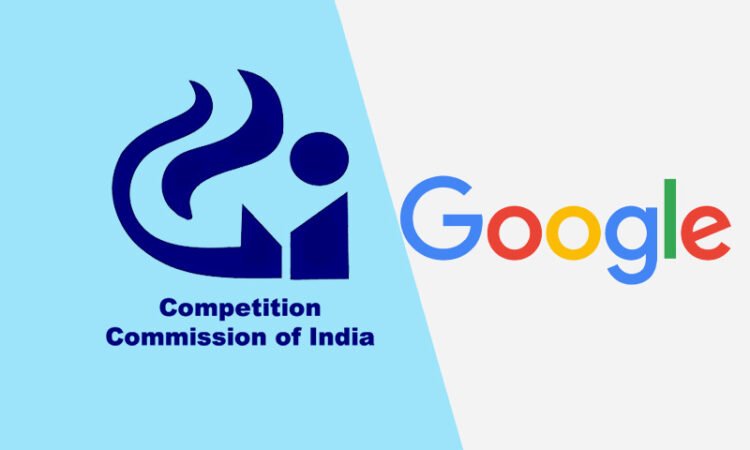Over two weeks, the Competition Commission of India (CCI) has fined Google twice — for abusing its dominant position in the market with its Android mobile operating system (OS) and for anti-competitive policies in its in-app billing and payment processing. Apart from levying a total fine of over Rs 2,000 crore, the anti-trust body has issued a slew of directions that could impact Google’s business.
On October 20, the CCI imposed a penalty of Rs 1,337.76 crore on Google for abusing its dominant position in multiple markets with its Android system. It also directed “Google to cease and desist from indulging in anti-competitive practices” and asked it to implement around 10 measures.
Android OS, which is a proprietary product of Google is licensed to those who manufacture devices. Google ties or bundles certain Google applications and services such as Google Chrome, YouTube, Google Search, etc. that are distributed on Android devices with other Google applications, services and/ or Application Programming Interfaces (APIs) of Google.
The device manufacturers are given a percentage of Google’s search revenue from their devices as consideration for pre-installation of Google apps. This brings down the costs for device manufacturers while also allowing Google to increase its user-base.
The case was brought by three informants who claimed to be “consumers of Android smartphones”, and not by device manufacturers themselves.
Abuse of dominant position
Section 4 of the Competition Act prohibits abuse of dominant position of an enterprise in the market. “Dominant position” means a position of strength enjoyed by an enterprise in the “relevant market” in India, which enables it to operate independently of competitive forces prevailing in the relevant market; or affect its competitors or consumers or the relevant market in its favour.
Citing data from IDC Centre for Consultancy & Research Pvt. Ltd, CCI stated that Android was a “dominant player” in the market — in the licensable smart mobile device OS in India, Android’s market share grew to 98.47% in 2018 from 35.4% in 2014.
Google argued that it was not the dominant player in the market since consumers had a choice between its Android devices and Apple’s iOS operating system. However, the CCI distinguished between the closed-source, non-licensable iOS and open-source, Android which can be licensed.
“In relation to understanding the extent of competition between Google’s Android ecosystem and Apple’s iOS ecosystem, it is also important to note the difference in the two business models which affect the underlying incentives of business decisions. Apple’s business is primarily based on a vertically integrated smart device ecosystem which focuses on sale of high-end smart devices with state of the art software components. Whereas Google’s business is found to be driven by the ultimate intent of increasing users on its platforms so that they interact with its revenue earning service i.e., online search which directly affects sale of online advertising services by Google,” the CCI said in its order.
The Play Store decision
On October 25, on the eve of the retirement of CCI Chairperson Ashok Kumar Gupta, the Commission imposed a Rs 936.44-crore penalty on the company for “abusing its dominant market position with respect to its Play Store policies”.
This ruling involves a clutch of three cases was brought against Google by Alliance of Digital India Foundation, which claimed to be an alliance of individuals which aims at improving the start-up ecosystem in India; Match Group, whose portfolio companies include dating apps such as Tinder, Hinge, OkCupid, and Ablo; and an confidential third complainant.
The Commission found that Google was using anti-competitive practices in its app billing and payment processing by favouring Google Pay over other players. Play Store charges a 30% commission from app providers for allowing them to use the Play Store’s payment system and Google Play In-App Billing. The app providers grievance was that they had no option to prefer using alternative payment aggregators which charge lower commissions than Google.
Issuing a cease-and-desist order, the CCI directed Google to modify its conduct within a defined timeline. This includes allowing mobile app developers to use third-party payment services on its app store.
How is the penalty calculated?
Under Section 27 of the Competition Act, the CCI has power to “impose such penalty, as it may deem fit which shall be not more than ten per cent. of the average of the turnover for the last three preceding financial years, upon each of such person or enterprises which are parties to such agreements or abuse…”
In the Android case, the CCI imposed a penalty amounting to 10% of revenue “generated or arising/accruing from India or attributable to services delivered in India.”
In a landmark 2014 decision, the Supreme Court had ruled that the penalty should be imposed not on the “total/ entire turnover of the offending company” but on “relevant turnover.” Google argued, based on this ruling that revenues generated from the allegedly infringing product/service should be taken into account when determining the amount of the fine. However, the Commission disagreed with the argument and said that it cannot “ignore the ad funded business model and the multisided, multiproduct Android ecosystem.”
In the Play Store ruling, the CCI imposed a penalty to the tune of 7% of the total revenue of Google’s business operations in India.






















